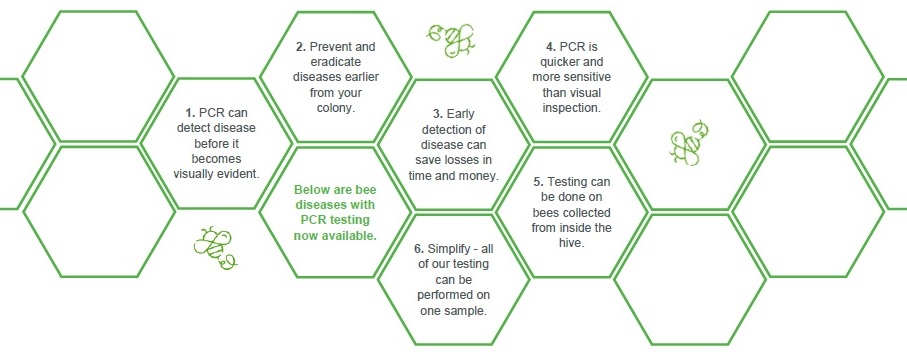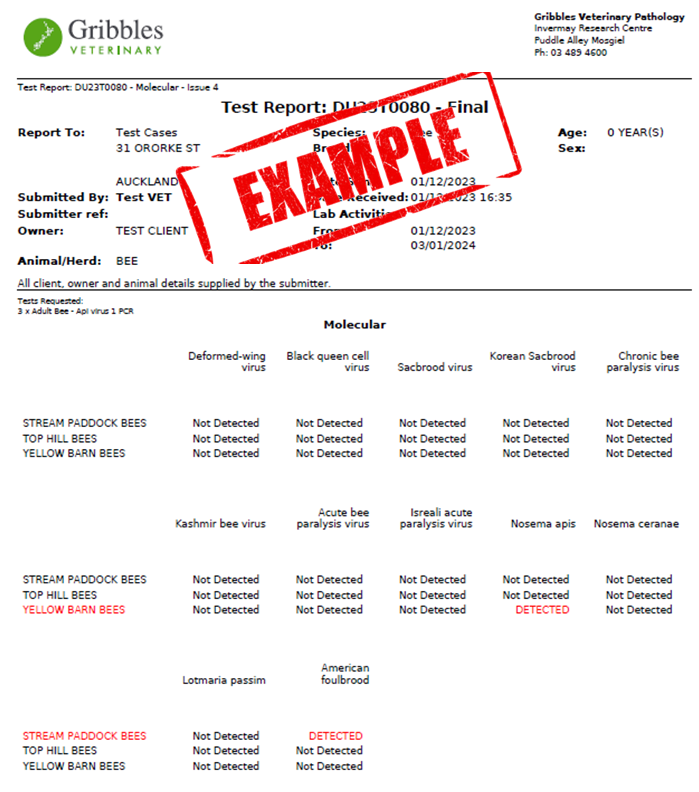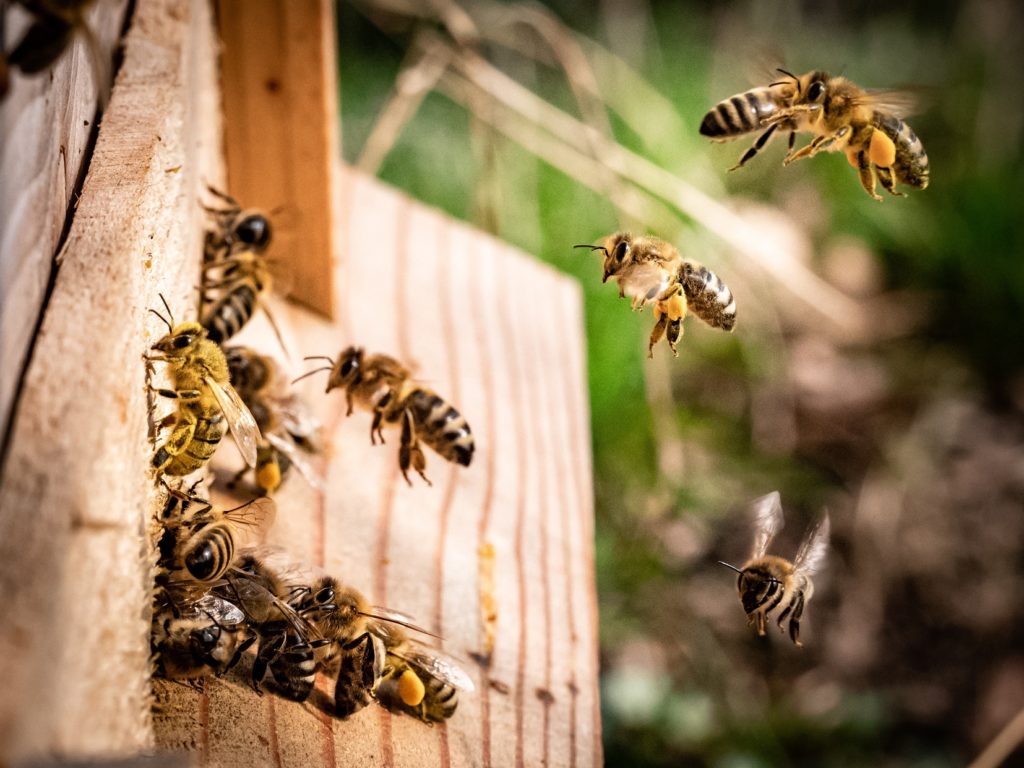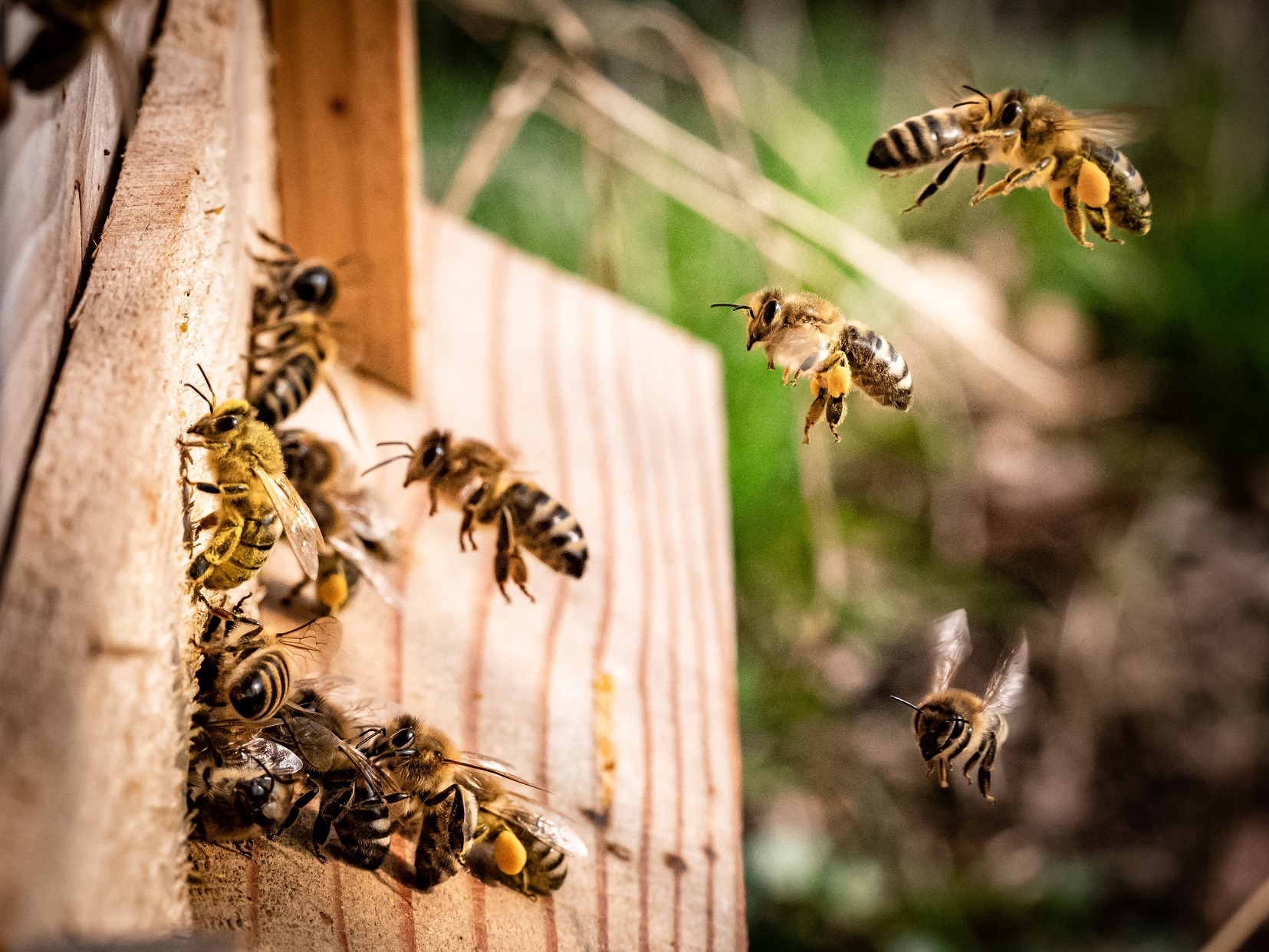Like any type of farming, inspection for bee diseases is an important part of beekeeping. The healthier your colony, the more productive they will bee, and in turn will help ensure the honey produced is as sweet as. Bees are however not just producers of honey. Their pollination of crops and native plants helps ensure our ecosystems and local economy are kept buzzing.
Awanui Veterinary has developed a comprehensive suite of PCR tests for New Zealand beekeepers to help determine the health status of bees in hives across the country. Why test your bees?

American Foulbrood (AFB)
AFB is a devastating disease of honeybees, and it is classified as a notifiable disease in most countries including New Zealand. New Zealand beekeepers have legal obligations (National American Foulbrood Pest Management Plan Order, 1998) they must meet to control and prevent AFB spread.
Deformed Wing Virus (DWV)
DWV has been linked to the global decline of honeybees. Symptomatic DWV manifests with deformed or missing wings, shortened abdomens, discoloration, and premature bee death. However, wing deformities are independent of the virus load and may not appeared in a colony that is carrying DWV. Asymptomatic infected bees may have an impaired immunity and reduced lifespan. DWV is prevalent in New Zealand and its distribution likely to fluctuate in response to presence of Varroa mite.
Nosema apis and N. ceranae.
Nosema are spore-forming microsporidian parasites of honeybees. Infection – even at high level – can be asymptomatic or cause general symptoms that could easily be confused with other factors affecting honeybee colonies. Nosema is widespread globally and within New Zealand.
Lotmaria passim
Lotmaria passim is a common intestinal trypanosome parasite in honeybees. It is a major cause of overwintering losses, especially when associated with Nosema infection.
Black Queen Cell Virus (BQCV)
BQCV causes mortality in queen bee pupae, with dead queen bee larvae turning yellow and then brown-black. It is believed that infection with BQCV may be transmitted by Nosema. BQCV is highly prevalent in New Zealand hives.
Sacbrood Virus (SBV)
SBV mostly affects worker larvae, but can also infect adult honeybees. The virus then multiplies within the infected larvae, and causes the larvae to die shortly after capping. The skin of the larvae then gradually becomes a fluid filled sac.
Chronic Bee Paralysis Virus (CBPV)
CBPV mostly affects adult honeybees, though it can also infect developing larvae. The virus can cause high levels of mortality and contribute to colony losses. The incidence of the disease has increased globally in recent years, and it has been reported in New Zealand hives.
Kashmir bee virus (KBV)
KBV can show the same clinical symptoms as CBPV, and both can be present at high titres without showing any signs of disease. KBV is most commonly spread by Varroa mites but can also be brought back to the hive by foragers visiting the same flowers as infected bees. KBV is known to be present in New Zealand.
Sampling instructions:
· Collect a pool of 10-15 bees from inside of each hive and place into the collection tube (pre-filled with preservative solution) provided in the sampling kit.
· Ensure all the container lids are closed tightly and they are clearly labelled with the pool ID you have provided on the submission form provided.
· Send the samples, along with the submission form to laboratory.
Testing options include:

· Testing for one disease or up to 6 on the same sample (AFB, DWV, Nosema spp., Lotmaria sp.)
· Api-virus 1 panel (DWV, BQCV, SBV, KSBV)*
· Api-virus 2 panel (CBPV, KBV, ABPV, IAPV)*
* AFB: American foulbrood / DWV: Deformed-wing virus / BQCV: Black queen cell virus / SBV: Sacbrood virus / KSBV: Korean Sacbrood virus / CBPV: Chronic bee paralysis virus / KBV: Kashmir bee virus / ABPV: Acute bee paralysis virus / IAPV: Israeli acute paralysis virus.
Reporting:
· Test turn-around time is 3-5 days
· Results reported to your submitting veterinarian or via your chosen agent (example report below).

How can you arrange testing?
Sample kits (containing sample tubes with preservative) for bee-keepers can be ordered from Gribbles Veterinary via the “shop” on our website. The cost of the kits is built into the test price, so you only need to charge clients once.
The submission form also includes sampling instructions for the bee-keeper. Collect the bees, complete the form, send them to us. It’s that simple.

Information for bee-keepers:
If you would like information on this new testing for your bee-keeper clients, you can download an information sheet here.
For pricing, sample kits and test requests, please just give us a call (0800 474 225 option 4) or speak to your local veterinarian or bee-keeping supplier today.

Photo credit: KaiWenzyl Unsplash

